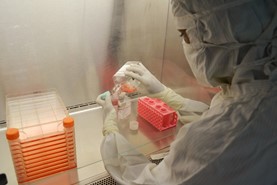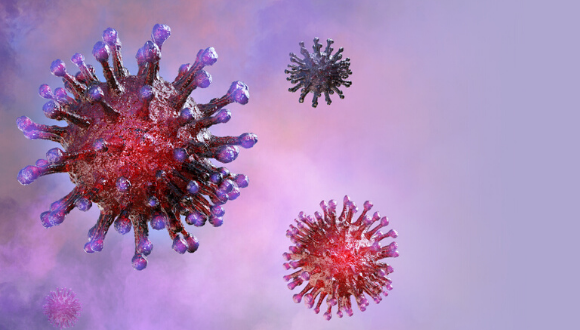Corona related research at Sackler Faculty of Medicine
Tel Aviv University joins national Coronavirus testing system. COVID-19 testing lab is located at Britannia Building at Faculty of Life Sciences
Corona research at Tel Aviv University
Immediately upon the outbreak of the Corona crisis, TAU opened the corona laboratory for diagnostic. The lab is located at Britannia building and performs 1,600 coronavirus tests a day.
At the Faculty of Medicine there are labs working on Corona Research projects.The labs are considered Biosafety Level 2 plus. Biosafety Level 2 Plus (BSL2+) describes laboratories where work with microorganisms is conducted in a BSL-2 laboratory with biosafety practices and procedures typically found at BSL-3. BSL2+ means that safety practices are enhanced over and above the practices required at BSL-2.
Highlights of SARS-Cov-2 laboratory biosafety
The use of BSL-3 practices in a BSL-2 laboratory = BSL2+. All procedures must be performed based on risk assessment and only by personnel with demonstrated capability in strict observance to any relevant protocols at all times. Initial processing (before inactivation) of all specimens should take place in a validated biological safety cabinet (BSC).
Non-propagative diagnostic laboratory work (e.g. sequencing, antibodies isolation, RT-PCR) should be conducted at facilities and procedures equivalent to BSL-2+. Propagative work (e.g. virus culture, isolation or neutralization assays) should be at a containment laboratory with inward directional airflow (BSL-3). There are no BSL-3 laboratories at Tel Aviv University. The propagative category is forbidden at Tel Aviv University.
Appropriate disinfectants with proven activity against enveloped viruses should be used (e.g. hypochlorite (bleach), alcohol, hydrogen peroxide. Patient specimens from suspected or confirmed cases should be transported as UN3373, “Biological. Substance, Category B”. The packaging consists of 3 components: a primary receptacle; a secondary package; a Rigid outer package
Viral cultures or isolates are forbidden to enter Tel Aviv University.
Guidelines for Corona research laboratories
Laboratory biosafety:
- Sackler laboratories (BSL-2+)
- Initial processing (before inactivation) of all specimens (peripheral blood, serum) should take place in biological safety cabinet (BSC)
- All technical procedures should be performed in a way that minimizes the generation of aerosols and droplets
- Centrifugation of blood specimens is in safety cups and sealed rotor near the BSC
- First barrier: personal protective equipment (PPE)
- The PI is ultimately responsible for the safety of his/her personnel
- All work is conducted in BSC, including loading and unloading of centrifuge safety cups for the tabletop centrifuge located within the laboratory
The laboratory personnel
- PPE includes: mask N-95; double gloves; lab coat; disposable lab coat back tide; cover sleeves; face shield; cover shoes
- Masks should be changed every 3 hours; gloves should be change frequently; face shield should be decontaminated with disinfection; wash the hands frequently; do not touch the face
- Training and competency verification for each procedure; specific training in handling pathogenic agents
- Supervision by scientists competent in handling infectious agents
- Hepatitis B vaccine is required for workers handling PBMC (peripheral blood mononuclear cells), serum and pulmonary lavage. Hepatitis B vaccine includes 3 dose series (0, 1, 6 months scheduled)

Biohazard waste
- The use of two biohazard bags
- Autoclave must be performed daily, immediately at the end of the work
- Forbidden to store biohazard waste bags and to transfer them to another Unit
- The solid non-sharp waste (tips, pipettes) is collected within the BSC in a small biohazard container lid (2/3 full, the bag is closed and removed to the biohazard waste
- Liquid waste is treated with 1:5 diluted bleach solution, allowed to sit at least 30 minutes, and then carefully disposed of via the sink
- Sharps, Pasteur pipettes and needles are prohibited in the BSL2+
Biological spill kit
- Kit includes: gloves, PVC gloves, Mask N95 or N99, pads, bleach solution diluted 1:5, tongs, dust pan, goggles
Risk assessment
- The biosafety review of the project is under TAU Safety Unit
- Each lab at Tel Aviv University has to apply for a permission to work with SARS-Cov-2 to Dr. Esti Michael, Biosafety officer, Safety Unit at Tel Aviv University (03-6409966, estermic@tauex.tau.ac.il)


